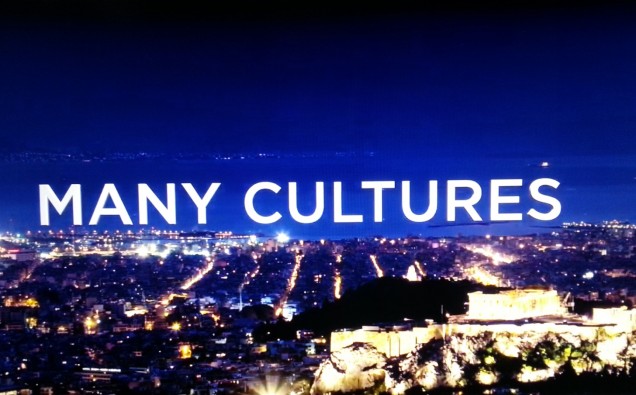
As the world faces resurgent questions of polarization along political, religious, ethnic and economic lines in several countries and regions, the United Nations has reminded the international community that mutual respect for different faiths and cultures is the bedrock of peaceful coexistence.
The UN call for intercultural understanding comes at a time, when the youth around the world, empowered by education and the Internet-facilitated access to information, is increasingly participating in the international discourse for a secure future.
At its 7th Global Forum held last week in Baku, Azerbaijan, under the theme: ‘Living together in inclusive societies: a challenge and a goal,’ the Alliance of Civilizations assembled some 150 youth representatives from all over the world shared their experience.
The representatives of youth worked together to define future narratives that stress the benefits of listening and learning from the messages of different faiths, cultural and ethnic backgrounds.
In recent years, Malala Yousafzai, a Pakistan education activist, has emerged as a strong voice in the fight against violent extremism. The Nobel Laureate survived a Taliban attack in 2012 and has since championed the cause of girls’ right to education.
However, the world needs to acknowledge more young people, who in their different positions and roles, are contributing to spreading awareness about peace, harmony and brotherhood in the world, torn by wars and conflicting national interests. A greater participation of youth in national and international forums will resonate the message for a peaceful world across countries and continents, and help evolve a collective narrative to counter violence.
The forum on alliance of civilizations took place amid unprecedented chaos afflicting the Middle Eastern nations, ISIS terrorist threat, mammoth refugee crisis in Europe and some Western politicians’ propagation of exclusivist political thinking.
Beset with repercussions of multiple conflicts in Syria, Iraq, Yemen, Libya that have seen use of state and group terrorism and support for violent proxies in regional conflicts,world diplomats, political leaders and religious leaders are finding it increasingly challenging to achieve peaceful solutions. Uncertainty over economic prospects are also dictating policies elsewhere.
Meanwhile, exploiting weak loopholes in governance structures, parochial forces including militant groups and nationalist political leaders are attacking minorities at several places.
But a senior UN official says mutual respect for different faiths and cultures is the “bedrock” of a world at peace and “prerequisite” for achieving many of the goals to which humankind and the United Nations aspire.
Speaking at the ‘High-level Conversation on Religions for Peace,’ Assembly President Mogens Lykketof noted that that since its inception, the UN has worked for the betterment of humanity, by seeking to maintain international peace and security, promoting human rights and fostering sustainable development.
“Buttressing all of its efforts, however, has been the promotion of understanding, tolerance, respect and dialogue between and among diverse cultures, civilizations, faiths and peoples,” he said, according to a statement.
Terrorist attacks all over the world, however, demonstrate clearly that achieving harmony and strengthening intercultural and interreligious dialogue is a great challenge and perhaps more important today than at any time in the recent past, he said.
On combating violent extremism, the official said that there is a clear need for the international community to unite across all religions and all countries in response to such threats, align strategies and provide resources commensurate to the task.
He also noted, according to the UN, that with the 10-year review of the Global Counter-Terrorism Strategy, and the tabling of the Secretary-General’s Plan of Action to Prevent Violent Extremism, Member States and the UN system now have a good opportunity to advance their thinking on how best to tackle these challenges.
Nassir Abdulaziz Al-Nasser, High Representative for the UN Alliance of Civilizations (UNAOC), highlighted the importance of mutual respect for different faiths and cultures in his remarks.
“Prosperity and well-being demands that people coexist in full respect of their diversity,” he said.
The UNAOC has been developing projects that bring together people, especially young people, as they are the prime targets of violent extremism, he said.
The participants also had intensive discussions on how best the Alliance could support the 2030 Agenda for Sustainable Development, in particular Goal 16 which calls for the promotion of “peaceful and inclusive societies for sustainable development.”
The Secretary-General’s Plan of Action to Prevent Violent Extremism recognizes that security-based counter-terrorism measures cannot eradicate terrorism unless preventive steps that address the roots of the problem accompany it. The Plan identifies distortion and misuse of beliefs, ethnic and cultural differences as one of the drivers of violent extremism.
“The engagement of religious leaders is essential to counteract the messages of the leaders of terrorist groups who distort the core of religious beliefs for self-serving purposes,” Al-Nasser said, urging religious leaders to assert their rejection of violent doctrines, emphasize the peaceful and tolerant values inherent in their theologies, and condemn the destruction by extremists of ancient sites that are the testimony of the history ancient culture sand symbols of pluralism and tolerance.
The Forum included a session on how to defeat hate speech. As a result, a textbook on concrete recommendations on how to avoid and combat hate speech will be published in English, French, Spanish and Arabic, he added.














